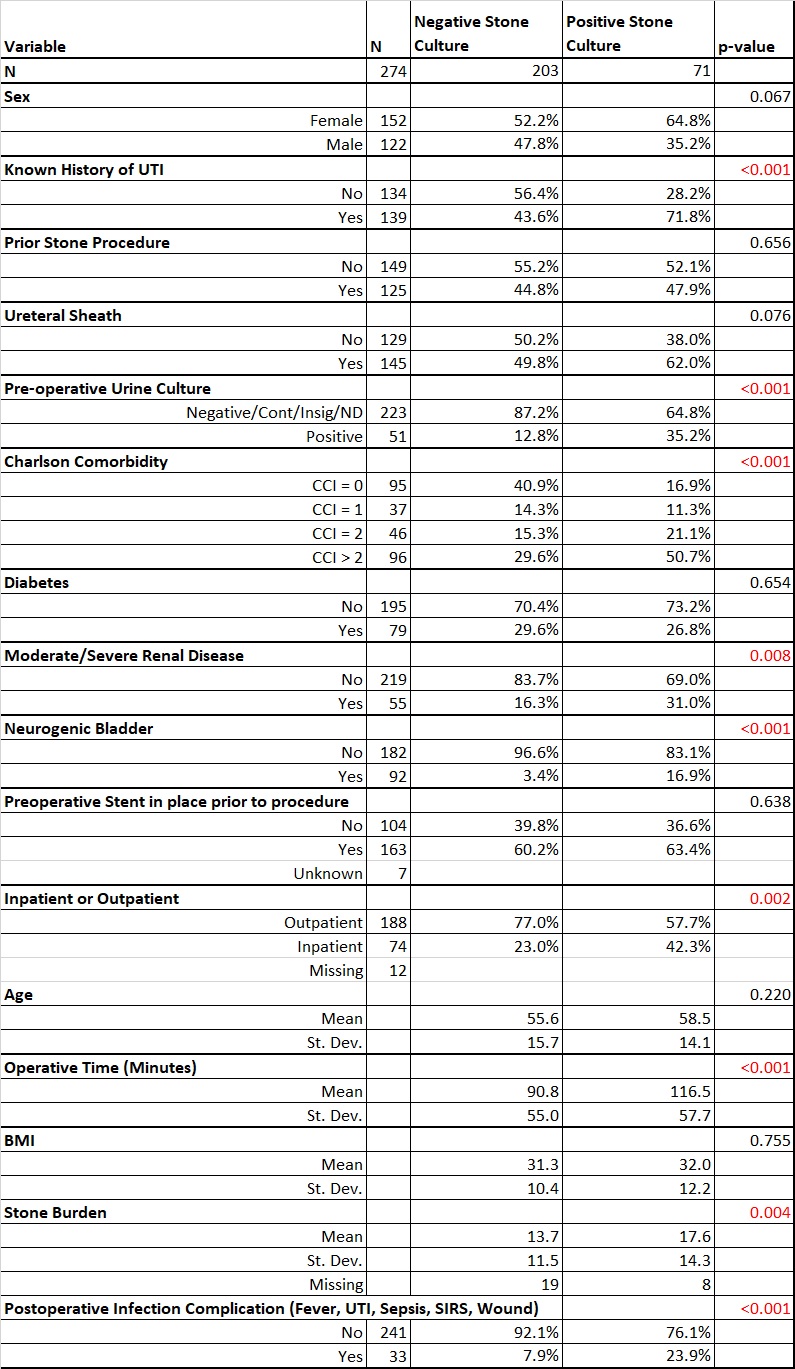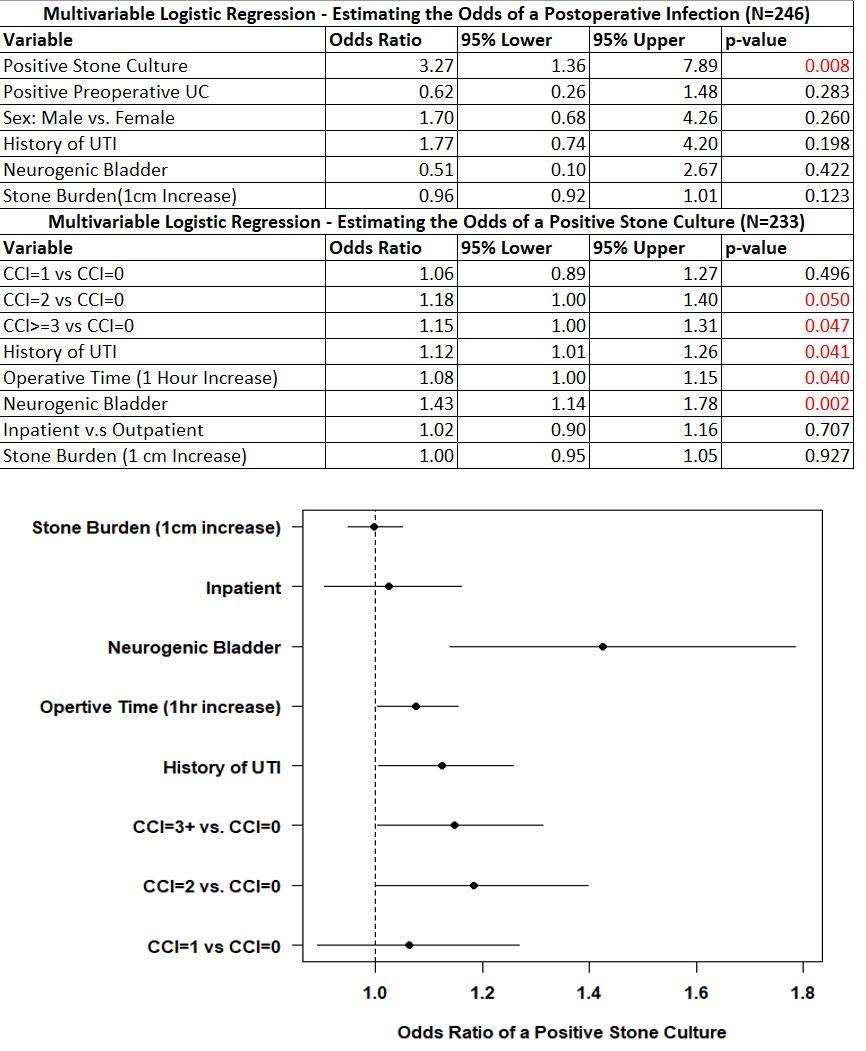Back
Poster, Podium & Video Sessions
Moderated Poster
MP44: Stone Disease: Surgical Therapy (including ESWL) III
MP44-13: Stone Cultures For Ureteroscopy: Are They Necessary and Who Needs Them? Results from a Single Institution Series
Sunday, May 15, 2022
1:00 PM – 2:15 PM
Location: Room 228
Daniel Wong*, Kenneth Sands, Alana Desai, Saint Louis, MO
- DW
Daniel Wong, MD, BA
Washington University
Poster Presenter(s)
Introduction: Stone cultures are recommended for high risk PCNL however their utility during ureteroscopy is less understood. We evaluate stone culture as a factor for post ureteroscopy infectious complications and determine which characteristics are associated with positive stone culture to better guide management.
Methods: Using an institutional database of stone extraction cases from 2016-2020, we evaluate all ureteroscopy cases in which stone culture was sent. We perform univariate analysis to identify factors associated with postop infection as defined by T>38°C, WBC >12K or <4K, HR >90, or UTI within 30 days of procedure. Logistic regression was performed on variables historically associated with postop infection. Univariate analysis was performed to determine factors associated with positive stone culture, followed by logistic regression using statistically significant variables.
Results: Of 274 ureteroscopy cases where stone culture was obtained, 71(25%) had a positive stone culture and 33(12%) had a postop infection.(Figure 1) Female sex and positive stone culture were associated with post-op infection. Positive stone culture remained the only significant predictor of postop infection on logistic regression. Predictors of positive stone culture were higher Charleston Comorbidity Index(CCI), operative time, history of UTI, and neurogenic bladder. (Figure 2) In the 33 cases of postop infection, 21 had organisms identified on post-op urine or blood cultures. Preop urine culture and stone culture were congruent with postop culture in 5(23%) and 8(38%) cases respectively. Of 12 cases with no postop organism identified, stone culture was positive in 4(33%) and preop culture was positive in 0.
Conclusions: Stone culture is predictive of postop infection after ureteroscopy. Urologists should prioritize sending stone cultures for high risk patients such as those with neurogenic bladder. Stone culture may provide the only chance at culture directed antibiotic therapy in a portion of cases.
Source of Funding: Washington University School of Medicine


Methods: Using an institutional database of stone extraction cases from 2016-2020, we evaluate all ureteroscopy cases in which stone culture was sent. We perform univariate analysis to identify factors associated with postop infection as defined by T>38°C, WBC >12K or <4K, HR >90, or UTI within 30 days of procedure. Logistic regression was performed on variables historically associated with postop infection. Univariate analysis was performed to determine factors associated with positive stone culture, followed by logistic regression using statistically significant variables.
Results: Of 274 ureteroscopy cases where stone culture was obtained, 71(25%) had a positive stone culture and 33(12%) had a postop infection.(Figure 1) Female sex and positive stone culture were associated with post-op infection. Positive stone culture remained the only significant predictor of postop infection on logistic regression. Predictors of positive stone culture were higher Charleston Comorbidity Index(CCI), operative time, history of UTI, and neurogenic bladder. (Figure 2) In the 33 cases of postop infection, 21 had organisms identified on post-op urine or blood cultures. Preop urine culture and stone culture were congruent with postop culture in 5(23%) and 8(38%) cases respectively. Of 12 cases with no postop organism identified, stone culture was positive in 4(33%) and preop culture was positive in 0.
Conclusions: Stone culture is predictive of postop infection after ureteroscopy. Urologists should prioritize sending stone cultures for high risk patients such as those with neurogenic bladder. Stone culture may provide the only chance at culture directed antibiotic therapy in a portion of cases.
Source of Funding: Washington University School of Medicine



.jpg)
.jpg)